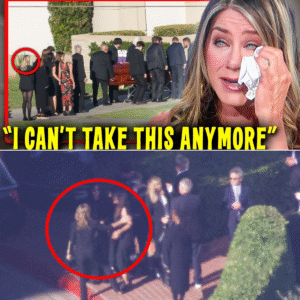On August 11, 2025, Fox News host Brian Kilmeade sparked a firestorm across the sports world with his candid remarks about Indiana Fever star Caitlin Clark during a segment on The Big Weekend Show. Kilmeade’s statement, “She doesn’t want to be a martyr, she just wants to play basketball,” cut through the ongoing narrative surrounding Clark’s treatment in the WNBA, igniting heated debates among fans, players, and analysts. His comments, which addressed the intense scrutiny and physical play directed at the 2024 WNBA Rookie of the Year, have amplified discussions about Clark’s role in the league, her impact on its popularity, and the broader dynamics of race, jealousy, and media attention in women’s basketball.
Caitlin Clark, the 23-year-old phenom from Iowa, has been a transformative figure in the WNBA since her debut in 2024. Her record-breaking rookie season, which included 337 assists—the most in a single WNBA season—catapulted her to stardom and significantly boosted the league’s viewership by 170%, with game attendance reaching its highest in over two decades. However, her meteoric rise has not come without controversy. Clark has faced aggressive defense, physical altercations, and perceived slights from peers, such as her surprising ninth-place ranking among All-Star guards despite leading fan votes with over 1.2 million. Kilmeade’s remarks zeroed in on this tension, suggesting that the constant focus on Clark’s treatment—whether it’s foul calls, injuries, or off-court drama—may be doing her more harm than good.
Kilmeade argued that Clark, who has missed 22 games this season due to injuries, including a persistent groin issue, is being unfairly singled out by media and fans who frame her as a victim. “She’s the least confrontational player in the WNBA,” he stated. “She doesn’t complain, she’s not trying to start trouble, she doesn’t want any ref to give her a call.” This portrayal of Clark as a player who simply wants to focus on basketball resonated with many fans who see her as a humble superstar caught in a whirlwind of external narratives. However, it also drew sharp criticism from those who argue that Kilmeade’s comments oversimplify the complex dynamics at play, including allegations of jealousy and racial bias within the league.
The WNBA has been grappling with its own growing pains as Clark’s popularity has brought unprecedented attention. Some, like ESPN analyst Dick Vitale, have called the treatment of Clark “absurd,” pointing to her low All-Star ranking as evidence of resentment among peers. Others, including former NFL reporter Michele Tafoya, have explicitly suggested that jealousy fuels this treatment, with Clark’s status as a white, heterosexual player in a predominantly Black and lesbian league cited as a factor. These claims have sparked backlash, with critics arguing that such narratives inflame racial tensions and unfairly paint WNBA players as antagonistic. For instance, a Reddit thread with over 1,300 votes condemned the league’s engagement with social media outrage, urging players and officials to focus on basketball rather than online controversies.
Kilmeade’s remarks also touched on the physicality Clark has faced, which has been a focal point of debate. Incidents like a flagrant foul by Chicago Sky’s Angel Reese and a scuffle involving Connecticut Sun’s Jacy Sheldon have fueled discussions about whether Clark is unfairly targeted. Her teammate Sophie Cunningham, dubbed Clark’s “enforcer,” was ejected and fined for defending her in a June 2025 altercation, further highlighting the physical toll of the season. WNBA Commissioner Cathy Engelbert has acknowledged the league’s increased physicality but stopped short of directly addressing Clark’s treatment, emphasizing the need for players and fans to adapt. Meanwhile, calls for investigations into officiating, including a controversial Wall Street Journal opinion piece suggesting a federal probe into potential civil rights violations, have added fuel to the fire.

Clark herself has tried to steer clear of the controversy. In an interview with David Letterman, she acknowledged her “privilege” as a white player, emphasizing the contributions of Black WNBA stars who built the league. “I want to say I’ve earned every single thing, but as a white person, there is privilege,” she told Time magazine, a sentiment she reiterated to Letterman. Her comments reflect a desire to focus on basketball and unity rather than division, aligning with Kilmeade’s portrayal of her as someone who avoids the “martyr” role. Yet, the media frenzy, amplified by outlets like Fox News, has made it difficult for her to escape the spotlight.

The fallout from Kilmeade’s remarks has been polarizing. Supporters argue that he’s defending a young athlete who’s revitalized the WNBA, pointing to her role in increasing salaries, charter flights, and TV ratings. Critics, however, accuse him of sensationalizing the issue, with some on X calling his comments part of a broader conservative media narrative that exploits Clark’s story for cultural battles. As the Indiana Fever fight for a playoff spot with only three games left in the 2025 season, Clark’s return from injury remains uncertain, but her impact on and off the court is undeniable. Whether Kilmeade’s “truth bomb” will shift the conversation or further entrench divisions, one thing is clear: Caitlin Clark’s presence in the WNBA continues to challenge the status quo, forcing the league, its players, and its fans to confront uncomfortable questions about fame, fairness, and the future of women’s basketball.





